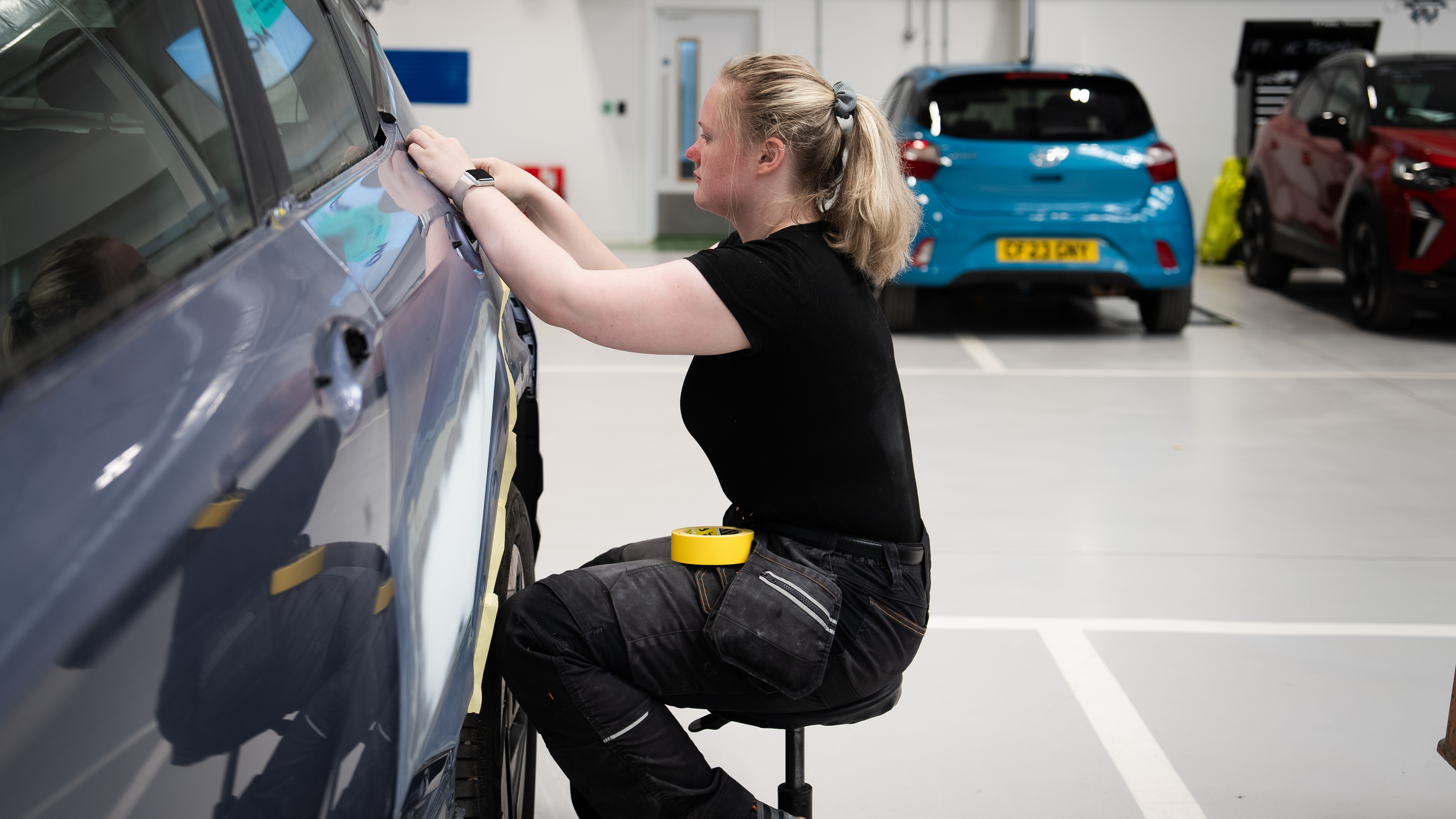Privacy glass is now a common feature on many new cars. You’ll often see it on rear windows, especially in larger models like SUVs or Wheelchair Accessible Vehicles (WAVs). But how do privacy glass and tinted windows differ? And how can you decide what’s right for you?
This guide explains the differences, what’s available through the Motability Scheme, and the pros and cons to think about before making your choice.
- What is privacy glass on a car?
- Why choose privacy glass?
- Are there any drawbacks?
- What happens if the privacy glass gets damaged?
- Is privacy glass right for you?
What is privacy glass on a car?
Privacy glass is glass that’s been darkened during the manufacturing process. It’s most commonly fitted to the back windows of a vehicle and helps reduce how much people outside can see in. While it gives a stylish look, it’s also used for comfort, security and privacy.
It’s different from aftermarket tinting, which is usually applied as a thin film on top of the glass after the car is built.
What’s the difference between privacy glass and tinted windows?
The term ‘tinted windows’ is sometimes used to describe both factory-fitted privacy glass and film tints. But there are key differences:
- Factory-fitted privacy glass is part of the glass itself and is built into the vehicle at production
- Aftermarket tinting film is added after the car has been made, either by a supplier or through a specialist
Both can help reduce glare and keep the car cooler in summer. But film tints can wear over time. They may fade, bubble or peel if not applied properly.
Get more information about the Motability Scheme
860,000 customers lease a brand-new car through the Motability Scheme.
You get a full package with the Scheme. We’ll cover your insurance, servicing, breakdown and glass.
Why choose privacy glass?
There are lots of reasons people choose privacy glass or tinted windows:
- Comfort and dignity: For some customers, especially passengers who use wheelchairs or need care while travelling, privacy glass can help them feel more relaxed
- Cooler interiors: Tinted glass can help reduce heat and glare from the sun
- Security: It’s harder to see inside the vehicle, which may deter theft
- Style: Some drivers like the appearance and feel that it makes their car look more premium
If you’re a WAV user, your supplier will talk you through optional extras like privacy glass when you apply to join the Scheme. Many come with privacy glass as standard, so it’s worth checking and comparing this before making a choice.
Style: Some drivers like the appearance and feel that it makes their car look more premium
While privacy glass has benefits, it’s not for everyone:
Some drivers find it harder to see out of the back windows, especially when reversing at night
If the glass is tinted with film, there may be extra costs if it needs to be removed or replaced
Privacy glass is usually only on rear windows. The law says front windows must let in at least 70% of light, so any factory or aftermarket tint must meet that standard
It’s also important to know that adding nonstandard tinting to your front windows, or choosing a mirrored tint, could break the terms of your lease. It may also affect your insurance. If you’re thinking about adding a film tint, make sure it follows UK legal limits – and speak to your dealer or converter first if you’re unsure.
For many customers, plain glass will be the preferred option. For example, if you or your named driver finds low-light visibility challenging, or if you’d rather keep things simple.
Factory-fitted privacy glass is best added when you order your vehicle. Retrofitting film later on may bring extra costs, especially if it needs to be removed at the end of your lease.
If your privacy glass is part of the glass itself, it will be repaired or replaced as part of your all-inclusive package. You’ll only need to pay the standard excess for a full replacement.
If you’ve added tinted film and it’s damaged, or needs to be removed during a repair, you’ll need to cover the cost of reapplying it.
Noticed a chip or crack in your windscreen or windows? The sooner you call, the more chance our supplier will be able to repair your windscreen rather than replace it.
It depends on your personal needs, and the needs of anyone travelling with you. Privacy glass can make journeys more comfortable, but it can also affect visibility, especially when it’s dark.
Here are a few things to think about:
- Do you regularly travel with someone who would benefit from added privacy?
- Would reduced visibility in low light make driving more difficult for you?
- Do you care about the visual style of your car?
- Does the vehicle have parking aids like sensors or cameras, which could help offset reduced visibility?
And remember, privacy glass stays for the full length of your lease, so it’s worth thinking about all seasons and situations.
How to get privacy glass through the Scheme
If you’re ordering a new car or WAV, speak to your Motability Scheme dealer or WAV supplier early. They’ll help you understand what’s available and guide you through any options, costs or approvals.
Featured image credit: photovs via Getty Images
Related articles
Everything you need to know about servicing
![]()







